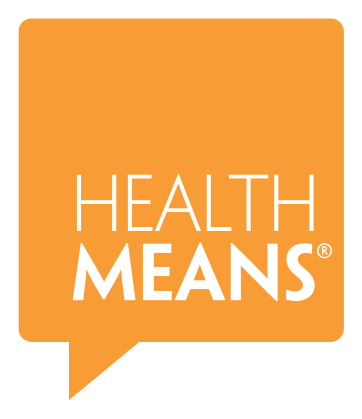Register Today For the More Natural Approaches to Osteoporosis and Bone Health 2.0 to get instant access to this page!
Endpoint = https://services.healthmeans.com/api/talk/
API Link = https://services.healthmeans.com/api/talk/9586?apiKey=a8d3402b-e27b-4659-b69c-a7a6f8779acf
Talk API data:
Array ( [id] => 9586 [legacyId] => 29980110-dbe2-406d-8769-ff9ff59efb4e [title] => Healthier Bones Masterclass [slug] => healthier-bones-masterclass [active] => 1 [approved] => 1 [coverPhotoUrl] => cover_photos/ca448ab150260371c0ced28352c94e71.png [premiumContent] => 1 [summary] =>
API Link = https://services.healthmeans.com/api/talk/9586?apiKey=a8d3402b-e27b-4659-b69c-a7a6f8779acf
Talk API data:
Array ( [id] => 9586 [legacyId] => 29980110-dbe2-406d-8769-ff9ff59efb4e [title] => Healthier Bones Masterclass [slug] => healthier-bones-masterclass [active] => 1 [approved] => 1 [coverPhotoUrl] => cover_photos/ca448ab150260371c0ced28352c94e71.png [premiumContent] => 1 [summary] =>
- 5 factors that diminish gut health and bone loss
- Practical tips to reduce glucose spikes to restore bone healing
- Tools to rebuild strong resilient bones
- 5 factors that diminish gut health and bone loss
- Practical tips to reduce glucose spikes to restore bone healing
- Tools to rebuild strong resilient bones









 Online Support
Online Support
Thank you Dr Millman. Going to your website now.
I did OAT test & am on low Oxalate diet, along with low lectin diet. Helping/less nighttime urination, but have constant dull pain in lower left abdomen. Done ultra sound, MRI, CT & found nothing except kidney cyst, with no concern. You mentioned something about oxalates causing pain here.
great program! learned alot. God Bless
Will soaking almonds leach oxalates from the nut and make it safe to consume?
Can a person who has had a vertebral fracture go natural in their treatment of osteoporosis?
Where can I get a glucose monitor? I don’t have diabetes but I would like to check my glucose to see what foods may be triggers. BTW too bad you’re in CA. There is no one around my area.
So I can go back to having regular milk instead of almond milk in my smoothie?
Hello- I am really enjoying the summit. What is the specific protease that will help break down dairy and casein? Thank you
Lactase is the enzyme that breaks down lactose (milk sugar), which people have a hard time digesting, and is the cause of most people’s dairy problems. Lactose intolerance results in gas, bloating, diarrhea, etc.
Taking a digestive enzyme supplement that includes Lactase prior to eating or drinking dairy products containing lactose (milk products specifically – milk, ice cream, custard, etc.) will generally reduce and often eliminate these symptoms, as it allows the lactase, which most adults lack the enzyme necessary to digest, to be properly broken down and digested.
Protease is the class of enzymes that break down protein containing foods, which include dairy products (i.e. eggs, cheese, meat, yogurt, kefer, etc.). There are no proteases which are “dairy specific”.
While there are no protein digestive enzymes that are “dairy specific”, one needs to understand that while younger individuals rarely have trouble digesting proteins (including those which dairy products contain), ALL digestive enzymes become weaker as we age. Therefore older individuals may notice they no longer digest proteins from any source as they once did when they were younger.
Taking a good digestive enzyme which contains proteases such as (bromelain, papain, Betain HCL) can help individuals get the full value of the protein their diet contains and which their body needs, and this may result in less digestive discomfort that comes from no longer having the digestive power they once had when they were younger, and their digestive enzymes themselves were far stronger than they have become as they’ve gotten older.
Dairy products (as well as fish, pountry, and eggs), contain all 9 of the “essential” amino acids (those which the body must get from external sources), and for this reason are considered to be “whole proteins” or “complete proteins”; while other protein sources, such as nuts, beans, and seeds, do not contain all of the essential amino acids, and are referred to as “incomplete protein sources”. Incomplete protein sources must be combined with other protein sources to obtain the amino acids that they, by themselves, are missing or are low in.
For instance, rice protein is high in the amino acids cysteine and methionine, by very low in lysine. Pea protein is low in cysteine and methionine, but high in lysine. Combining rice protein with pea protein balances out the amino acid profile and ensures a complete protein profile that is similar to eggs or meat. This is also the reason why “rice and beans” are often combined, not simply for taste, but to ensure a complete protein intake is achieved.
Unlike Lactase, which is specifically for the digestion of milk sugar, and is therefore “dairy specific”, proteases are used in the digestion of all proteins, and there are no proteases which are specifically required or used to break down the proteins in dairy products, including Casein (milk protein).
Proteases refer to the group of digestive enzymes that break down all proteins, regardless of source. Proteases do not specialize in the source that any protein comes from. There is no “specific protease” that will help break down dairy and casein, as ALL proteases will break down dairy and casein just as they are designed to do.
For the sake of completeness –
Lipases are digestive enzymes that are required to breakdown and assimilate fats.
Again, there are no Lipases specific to dairy, as they will break down fats regardless of their source.
The ONLY digestive enzyme that is specific to dairy is Lactase, which is needed for the digesting of the sugars that are found specifically in dairy milk products, which is commonly lacking in adults.
All other digestive enzymes, proteases (for protein digestion) and lipases (for fat digestion) and amylases (for converting starches into sugars), will work effectively on the nutritional units they are designed to digest, regardless of the source.
Wow, that was an informative response to the understanding of enzymes. Thank you.
great info thanks for taking the time to add. this!
Thanks so much for sharing all this great information!